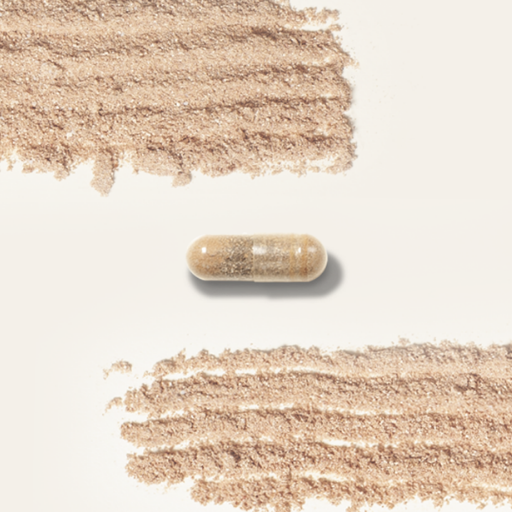Thinking of taking iron for skin health? Here’s why you should consider it


Thinking of taking iron for skin health? Here’s why you should consider it
The skin is our largest organ in the body and can be an indicator of our overall health. Among the many nutrients that support skin health, iron is one that’s often overlooked.
Apart from skin health, iron is essential in energy production, immunity, and brain function. Let’s get to know the benefits that iron can have on the maintenance of skin health.
What is iron?
Iron is one of the essential minerals that our bodies require to function smoothly (1). Since our bodies cannot produce iron on their own, we have to rely on our diet and other sources for iron, such as supplements.
Iron for skin: Why is it important?
We usually associate iron with energy, red blood cell production, immune system health, and brain function. But besides these important functions, iron also plays a key role in improving our skin health.
Research shows that certain iron-containing proteins play a key part in the metabolism of collagen (2), a protein abundantly found in our bodies (3).
Collagen provides structural integrity to our bones, muscles, tendons and skin (3). It also helps make our skin look young and healthy. As we advance in years, our skin tends to sag and wrinkle because collagen decreases with age.
In addition to healthier looking skin, collagen also helps our wounds heal quickly. It achieves this by attracting new skin cells to the site of the wound, so that new tissue can grow (3).
What are the symptoms of low iron levels?
Low iron levels, also known as iron deficiency, can manifest in various ways, impacting your overall health and skin. Common symptoms include pale or dull skin, dryness, and a loss of elasticity due to decreased oxygen supply to skin cells. Other signs include fatigue, brittle nails, hair loss, shortness of breath, and frequent infections. If left untreated, iron deficiency can lead to anaemia, which may exacerbate these issues. Recognising these symptoms early can help you address the deficiency and restore skin health and vitality.
What are good sources of iron for skin?
There are many food sources you can consider when it comes to iron. Here are just some of your choices if you want to consume iron for skin health (4):
Meat and eggs
Meats, such as beef, lamb, ham, turkey, chicken, veal, pork, dried beef, and liver are some of the best sources of iron (4).
Seafood
Prawn, clams, scallops, oysters, tuna, sardines, haddock, and mackerel contain a good amount of iron as well as other beneficial nutrients (4).
Vegetables
Vegetables with good amounts of iron are spinach, sweet potatoes, peas, broccoli, green beans, beet greens, dandelion greens, collards, kale, and chard (4).
Fruits
Look for strawberries, melons, raisins, dates, figs, prunes, dried apricots, and dried peaches if you’re looking to add some iron for skin health (4).
Breads and cereals
Look for whole wheat bread, enriched pasta, bran cereals, corn meal, rye bread, oats (steal cuts, organic, or rolled), enriched rice, and whole grains (quinoa, spelt, millet, and brown rice) for your iron fix.
Beans and other foods
Tofu, beans, tomato products, dried peas, dried beans, and lentils can help you meet your daily iron requirement.

Iron supplements
Sometimes dietary restrictions can prevent us from getting our daily iron intake. In these cases, iron supplements can be an effective way to meet your daily iron requirements. However, not all iron supplements are created equal.
Our iron supplement is made with the premium ingredient Ferrochel® (Ferrous Bisglycinate Chelate), combined with Vitamin C for optimal absorption. Compared to other forms of iron, Ferrochel® is more bioavailable, meaning it’s better absorbed by the body, and it’s known to cause less gastric upset.
Each dose provides 18mg of elemental iron, which is a recommended amount for many individuals. However, we always advise consulting with your doctor to ensure the dose is suitable for your specific needs and health profile.
Besides helping our bodies with energy production, immunity, and brain function—it’s also vital for maintaining healthy, glowing skin. With this in mind, it’s essential to ensure you’re meeting your daily iron needs through diet and/or supplementation.
Do you have your doctor’s approval for iron supplementation? It may be time to consider Vitable vitamins. Our vitamin subscription in Australia provides custom vitamin packs to support your health goals and needs. With our vitamin delivery service, you’ll be sure to receive your daily vitamins on time, right at your doorstep!
Find out more about other supplements that can support energy levels in the body:
Iron | Ashwagandha | Magnesium | B complex | Acetyl L-carnitine | Vitamin C | Vitamin B12
*Always read the label. Follow the directions for use. If symptoms persist, talk to your health professional. Vitamin and/or mineral supplements should not replace a balanced diet.
References:
- Iron (n.d.) Researched December 9, 2021 from https://research.vitable.com.au/iron
- The Role of Iron in the Skin and Cutaneous Wound Healing (2014) Researched December 9, 2021 from https://www.ncbi.nlm.nih.gov/pmc/articles/PMC4091310/
- What is Collagen and Why do People Use it? (2017) Researched December 9, 2021 from https://www.medicalnewstoday.com/articles/262881
- Iron Rich Foods (n.d.) Researched December 9, 2021 from https://www.redcrossblood.org/donate-blood/blood-donation-process/before-during-after/iron-blood-donation/iron-rich-foods.html
